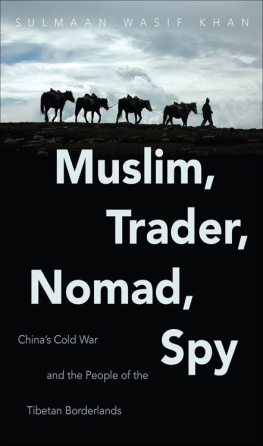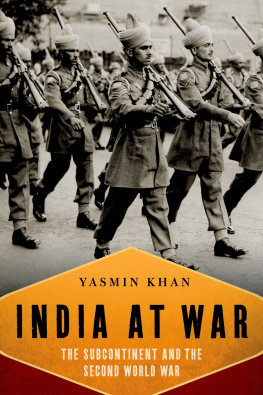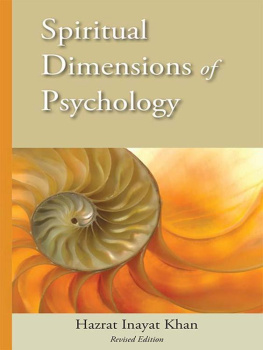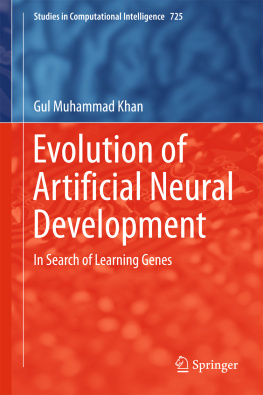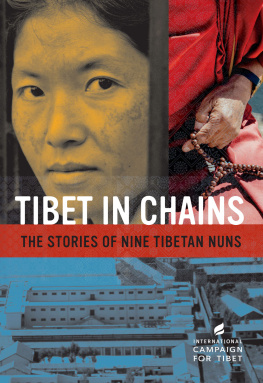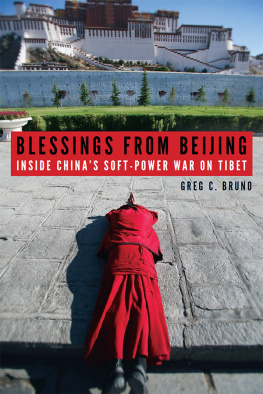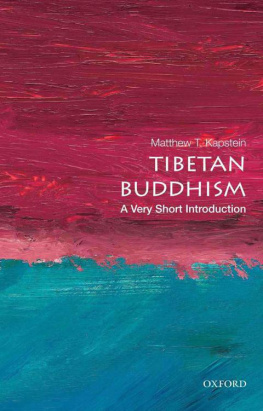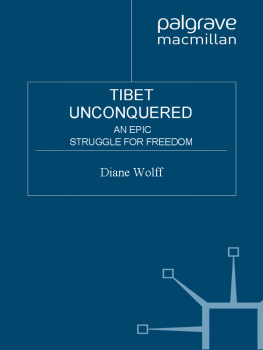Muslim, Trader, Nomad, Spy
The New Cold War History
Odd Arne Westad, editor
This series focuses on new interpretations of the Cold War era made possible by the opening of Soviet, East European, Chinese, and other archives. Books in the series based on multilingual and multiarchival research incorporate interdisciplinary insights and new conceptual frameworks that place historical scholarship in a broad, international context.
Muslim, Trader, Nomad, Spy
Chinas Cold War and the People of the Tibetan Borderlands
Sulmaan Wasif Khan
The University of North Carolina Press
Chapel Hill
2015 The University of North Carolina Press
All rights reserved
Set in Utopia by codeMantra, Inc.
Manufactured in the United States of America
The paper in this book meets the guidelines for permanence and durability of the Committee on Production Guidelines for Book Longevity of the Council on Library Resources. The University of North Carolina Press has been a member of the Green Press Initiative since 2003.
Jacket illustration: Depositphotos.com/bhairav
Complete cataloging information can be obtained online at the Library of Congress catalog website.
ISBN 978-1-4696-2110-4 (pbk.: alk. paper)
ISBN 978-1-4696-2111-1 (ebook)
19 18 17 16 155 4 3 2 1
For ABK,
fellow wanderer.
And for my parents,
Zeba and Wasif,
who gave me the gift
of books.
Contents
3 Border Crossers
The Sino-Nepali Frontier
4 Muslim, Trader, Nomad, Spy
The Sino-Indian Frontier
Maps
1 Ethnolinguistic groups in China,
2 The Tibetan plateau and Chinese cartography,
3 Regional divisions of the Tibetan plateau,
4 The Sino-Nepali border,
5 The Sino-Indian boundary dispute,
6 The western sector of the disputed Sino-Indian boundary and the Sino-Pakistani border,
Acknowledgments
Every now and then, I find myself grinning at the memory of a chuckle. The chuckle mixes amusement and pridegenerally provoked by an irreverent question, or a sharp, uncompromising turn of phraseand it belongs to John Gaddis. I hope John chuckles when he reads this book, for his fingerprints are all over it. It was John who first inspired me to enter academe, with his integrity as a historian and his compassion as a teacher. Integrity and compassion alike made this a much better dissertation and book. It was, as always, an adventure working with him, and it is Johns favorite approbationThats quite remarkablethat I aim for, whether writing or teaching.
Paul Kennedy brought his immense knowledge of international history to this project. I will forever treasure our rambles across the salt marshes, looking for eagles and discussing empire. Peter Perdue insisted that the study of modern Chinas foreign relations could and should begin with at least the Qing; the length and breadth of perspective he brought to my graduate education proved invaluable. Peter also reminded me of the need to convey a sense of Tibets vastness as I wrote. Odd Arne Westad, that marvelous scholar of Chinas Cold War, gave generously of his time: first as an external reader for my dissertation, and then as the editor of the New Cold War History series. Arne showed me how much anthropology had to offer; for that and for lunch at the Granta I will always be grateful.
Several other people in New Haven provided advice and support. Charlie Hill first taught me to write and self-edit. It was Charlie who explained the importance of the United Nations to me, and it was Charlie who knew what Chiang truly wanted in Tibet, even without seeing the Generalissimos diaries. Daniel Headrick braved the entire manuscript in draft and offered excellent suggestions. So too did Jonathan Spence, whose question, What was it like to be there?, became a clarion call. Anne Fadiman reminded me that academic writing did not have to be different from writing writingan insight that made the work on this book much more fun. Tim Snyders incandescent series of lectures on Eastern Europe taught me how to think about ideology. Adam Tooze intervened at a crucial moment with crucial advice: Work on it every day. (I settled, I confess, for five days a week.)
This work was funded by the Smith Richardson Foundation, the Council on East Asian Studies, and International Security Studies (ISS) at Yale. ISS, in addition to pouring enormous amounts of money into this project, offered a colloquium where I could be confronted with challenging questions, more free coffee than even I could drink, and, above all, wonderful company. Fortunate is the person who can count Igor Biryukov, Ann Carter-Drier, and Kathleen Galo Murphy as friends; Kathleen ran a few dozen printouts of this manuscript, and, by cat-sitting, made sure I could head off to Taiwan. Some of my happiest afternoons (and the second chapter of this book) came from arguing with Ryan Irwin about the UN. Tracy Jacksons friendship has been a boon since I first went to work for her at Koffee Too? (the best caf that ever existed; now, alas, no more); it ensured that I could travel without worrying about practicalities back home. I am indebted to her, Lee, Chloe, and Alyssa. I could never tire of sharing caf space with John Merriman and Jim Silk. Jims leads in Nepal were useful and his company was invariably stimulating. Toni Dorfman has been a second mother to me; her gift of unabashed laughter is contagious, and I learned much from her discussions of theater. Cynthia Farrar did me a favor when she talked me out of law school and another when she dined with me the night after the great snowstorm in Boston. I could not have continued to write without a weekly excursion around East Rock in the company of Ranger Dan Barvir. Bill Lyle made sure that his book was on schedule, halting his poodles every time we ran into one another and fixing me with a gimlet eye to ask just where it was. He was the best one could hope for in a neighbor. Susie Jakes, Zhang Taisu, Kate Epstein, Michael Morgan, Carolyne Davidson, Aaron OConnell, Schuyler Schouten, Chris Miller, Charlie Laderman, and Victor McFarland made Yale fun. Lien-Hang Nguyen, who first taught me Southeast Asian history, took it upon herself to give me a tutorial in publishing; she remains a superb teacher and friend. Sara Shneiderman and Rana Mitter provided valuable feedback.
I could not have started this book without the financial and logistical help of Christian Ostermann and his team at the Cold War International History Project (CWIHP). I owe Christian for many things, but above all, for his friendshipfor the discussions on Markus Wolf and bamboo groves in Istanbul and Shanghai. CWIHP hosted a memorable discussion on Tibet and the Cold War; my thanks for that to Kristina Terzieva and Allison Lyalikov. Shortly after that workshop, John Kenneth Knaus spent a memorable few hours with me, recalling his work with Tibetans.
Xu Laoshis excellent lessons took me to the point where I could read freely in Chinese archives. Xiao Gan and Li Dongyan made sure I ate well and in good company whenever I returned to Beijing. I would never have gotten anywhere in China without the help of two true scholars: Li Danhui and Shen Zhihua. They were patient with my bumbling; they gave freely of their own immense store of information. Li Danhui, in particular, held my research to a high standard; I will never forget the day she came up to me and said, What you found was interesting. The Foreign Ministry Archives in Beijing are the only archives I know of where a visiting researcher could be scolded for not wearing an overcoat on a cold day (Young people these days! was how I was eventually dismissed, with a PLA overcoat thrust upon my shoulders) or be given watermelon in the summer. My thanks to Zhang Sulin, Xiao Ying, and above all, the effervescent and charming Hao Weihua. Archivists in Chongqing, Xining, Taiwan, Britain, and California all did much to help.
Next page
